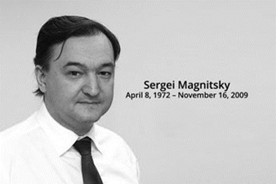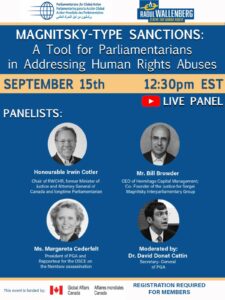The democratic West must maintain sanctions on Russia until three outcomes are achieved, including war criminals being brought to justice, say leading experts.
This month marks the 20th anniversary of the first session of the International Criminal Court under the Rome Statute, a major milestone in the effort to end impunity for mass atrocities. The ICC’s first generation of operation shows how much it is needed – and what more needs to be done to maximize its impact, note legal experts and rights advocates Irwin Cotler, Allan Rock and Brandon Silver.*

Credit ESI
Complementary to the ICC is the international sanctions regime, which includes global legal norms (so-called Magnitsky laws) that allow for punitive measures – travel bans, asset seizures, financial prohibitions, and, in Canada, asset repurposing – against specific individuals responsible for human rights abuses. The ICC and targeted sanctions are each significant in themselves; but to achieve their full potential, they should be mutually reinforcing, they write for Policy:
“Sticks” – such as threats of economic pressure – have also proven effective. For instance, a US threat to withhold aid led then-Yugoslav President Vojislav Koštunica to have a “change of heart” in 2001, resulting in Slobodan Milošević’s extradition to The Hague for trial before an international tribunal.
To bring such leverage more consistently to bear, states with existing sanctions legislation should amend their laws or regulations to include ICC prosecutor requests as one of the triggers for considering new sanctions designations. If all ICC member states were to adopt such a policy, 123 countries would become off-limits to suspects on the run.
 By interweaving two of the most transformative trends in international justice – trials and sanctions – we can ensure that the effort to combat impunity grows stronger, rather than weaker, over time. The victims of the world’s worst crimes deserve nothing less, they add. RTWT
By interweaving two of the most transformative trends in international justice – trials and sanctions – we can ensure that the effort to combat impunity grows stronger, rather than weaker, over time. The victims of the world’s worst crimes deserve nothing less, they add. RTWT
Sanctions against Russia in the wake of its Ukraine invasion have interrupted foreign direct investment, causing food, drug and material shortages, while roughly a thousand foreign companies have exited Russia; most will never come back, note Gary Kasparov and Michael McFaul.
Yet sanctions have still not been imposed on thousands of Russian officials, party leaders, regional government heads, board members of Russian state-controlled enterprises, propagandists and celebrities supporting the war. It’s time to add them to the list. Individuals in third countries helping Putin — such as former oligarch Bidzina Ivanishvili, the de facto ruler of Georgia – should know they, too, will face sanctions unless they stop supporting Putin’s barbaric invasion, they write for The Washington Post:
Democracies must signal their intention to maintain sanctions for as long as it takes to achieve three outcomes: Ukraine must regain all of its territory, including Crimea; Russia must pay war reparations to Ukraine in full; and Russian war criminals must be brought to justice. Leaders of the free world must avoid the temptation to offer partial sanctions relief for incremental changes in Russia’s war efforts, and they should never do anything regarding sanctions relief without endorsement from Ukraine’s government.
“We’ve seen quite significant pressure on the Russian economy,” says Professor Samuel Greene, director of the Russian Institute at King’s College London. After Putin says the economic sanctions put in place by the West are “not impacting” Russia, TimesRadio (above) asks Greene about the effects.
 Fittingly, the Ukrainian city of Lviv (then Lemberg) was the birthplace of the notion of crimes against humanity that produced the ICC.
Fittingly, the Ukrainian city of Lviv (then Lemberg) was the birthplace of the notion of crimes against humanity that produced the ICC.
In his must-read book, East West Street: On the Origins of “Genocide” and “Crimes Against Humanity,” Anglo-French lawyer Philippe Sands retrieves the amazing stories of Hersch Lauterpacht, the legal architect of “crimes against humanity,” and Raphael Lemkin, who originated the concept of “genocide.” Both studied law in Lemberg and between them defined post-war international criminal law, but never met. While Lauterpacht viewed atrocities as crimes against the individual, Lemkin focused on group identity – different conceptualizations reflected in the definitions of the crimes themselves: the concept of crimes against humanity criminalizes acts against individual civilians, as genocide criminalizes acts intended to destroy a national, ethical, racial or religious group (in whole or in part). Their work provided the legal basis for the Nuremberg trials and conviction, and the jurisprudence used to prosecute perpetrators of atrocities in international criminal tribunals, including the International Criminal Court.
*Irwin Cotler, a former minister of justice, attorney general, and member of Parliament of Canada, is Canada’s Special Envoy on Preserving Holocaust Remembrance and Combatting Antisemitism. He served as Special Adviser to the Foreign Minister on the creation of the International Criminal Court and as Chair of the International Parliamentary Forum for the ICC.
Allan Rock, Canada’s former ambassador to the United Nations, is a member of the World Refugee & Migration Council.
Brandon Silver, a human-rights lawyer, is Director of Policy and Projects at the Raoul Wallenberg Centre for Human Rights.







